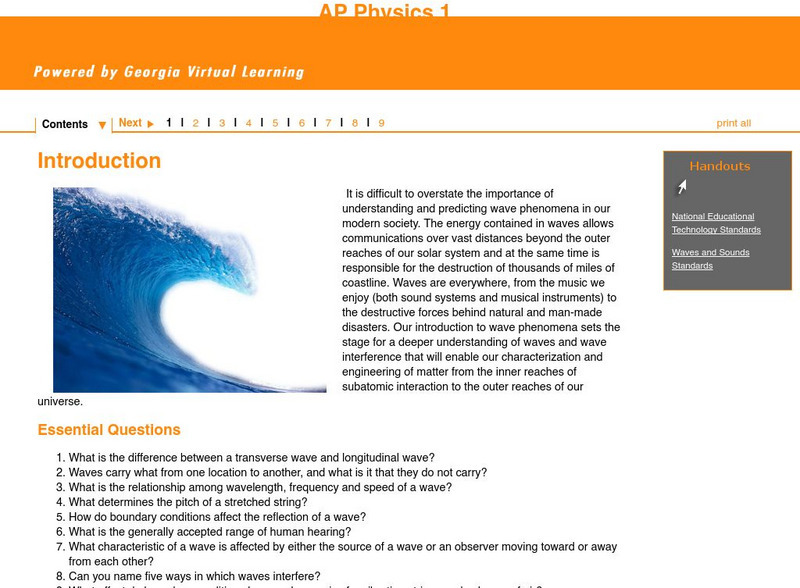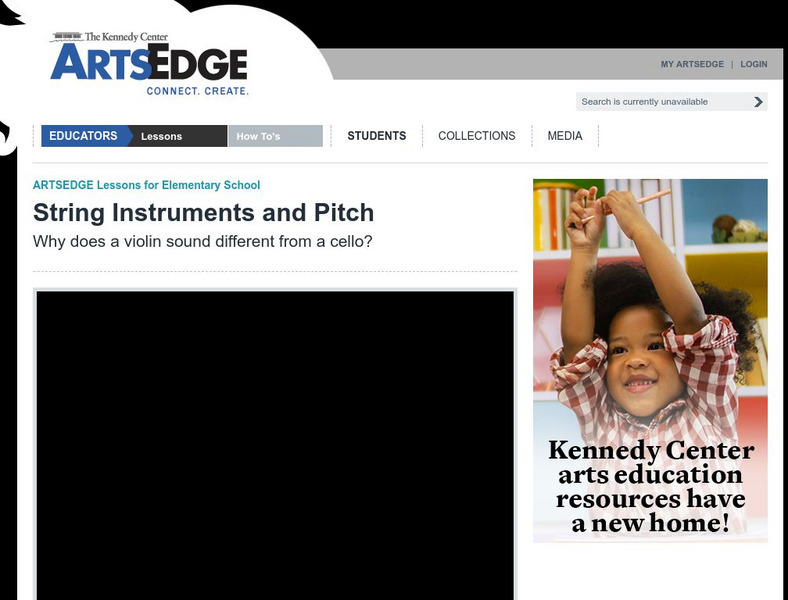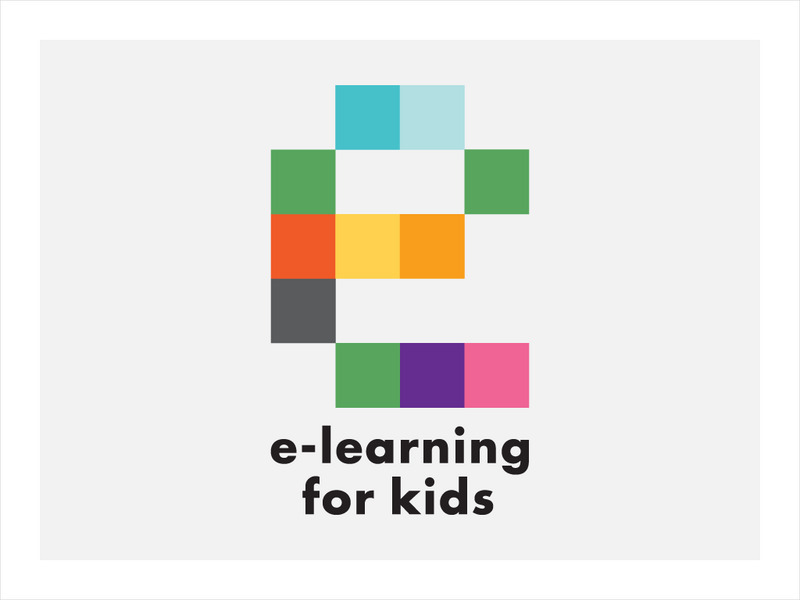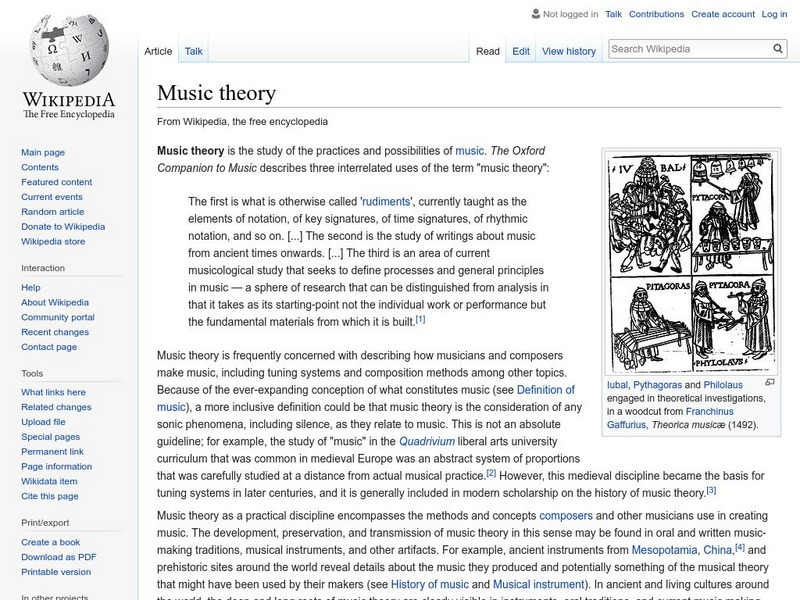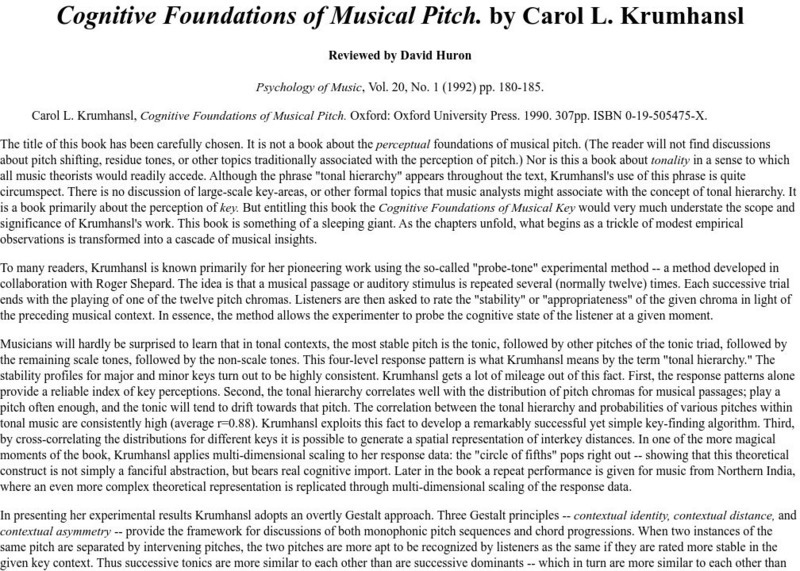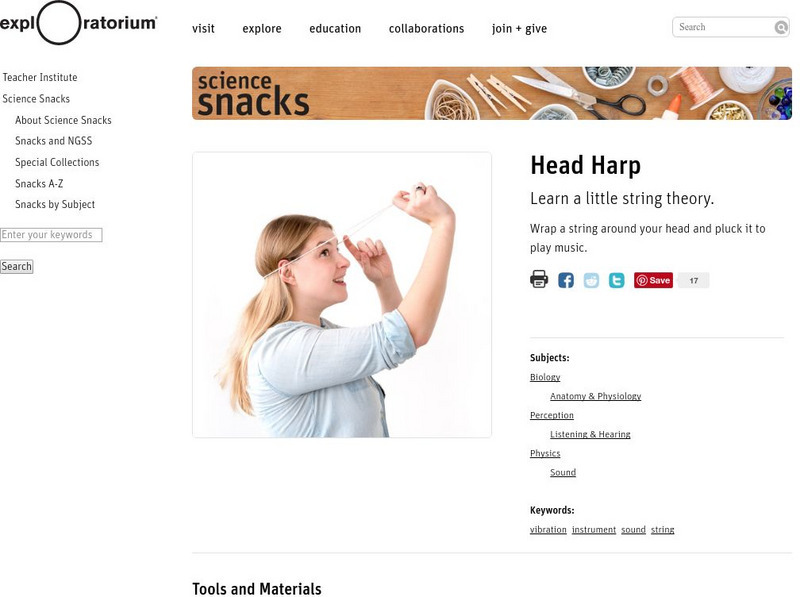Georgia Department of Education
Ga Virtual Learning: Ap Physics 1: Waves and Sound
Students will understand and predict wave phenomena, and investigate the energy contained in waves. They will gain a deeper understanding of waves and wave interference that will enable characterization and engineering of matter from the...
PBS
Pbs Learning Media: Pitch: Straw Kazoo
This video segment, adapted from ZOOM, explores the different sounds that a simple drinking straw can produce when you cut the straw and blow into it. [1:56]
Texas Education Agency
Texas Gateway: Physics of Hearing: Hearing
By the end of this section, you will be able to define hearing, pitch, loudness, timbre, note, tone, phon, ultrasound, and infrasound; compare loudness to frequency and intensity of a sound; and identify structures of the inner ear and...
OpenSciEd
Open Sci Ed: 8.2 Sound Waves Teacher Professional Development Overview
This four-day professional development session introduces teachers to the OpenSciEd materials generally in addition to the 8.2 Sound Waves unit.
OpenSciEd
Open Sci Ed: Unit 8.2 Sound Waves
In this unit, 8th graders develop ideas related to how sounds are produced, how they travel through media, and how they affect objects at a distance.
OpenSciEd
Open Sci Ed: Visualizing Sound in a Medium
This simulation is a slow motion version of what you might actually see if you could see particles in a medium vibrating.
PBS
Pbs: Sesame Street: Science
A collection of interactives, videos, and documents on a variety science concepts.
PBS
Pbs Learning Media: Sound Waves: Interactive Lesson
Learn about sound waves, which move vibrations from one place to another through liquids, gases and solids, with this interactive lesson.
John F. Kennedy Center
The Kennedy Center: String Instruments and Pitch
After learning about different stringed instruments, students create their own and then investigate how length and width of the strings affect the pitch. Lesson includes handouts, a rubric, a bibliography, and links.
Georgia State University
Georgia State University: Hyper Physics: The Place Theory
An indexing page for an elaborate and in-depth hyper-textbook on various physics topics. This page indexes several others which pertain to human ability to perceive sound and recognize pitch. Introduces and explains Place Theory.
Georgia State University
Georgia State University: Hyper Physics: Sound and Hearing
Home page for a hypertext course on physics. Accesses a range of topics from hearing to sound measurement to sound propoation to musical instruments.
E-learning for Kids
E Learning for Kids: Science: Egypt: What Is Pitch of Sound?
Ali really loves to make music. Help make Ali's dream come true. Together, answer questions about musical instruments.
Wikimedia
Wikipedia: Music Theory
Wikipedia offers detailed information on music theory, a set of systems for analyzing, classifying, and composing music and the elements of music.
Project Britain
Primary Homework Help: Sound Quiz
Read some fast facts about sound energy first, then try a fourteen question review quiz. Check your answer after each question.
Ohio State University
Huron's Review of C. Krumhansl's Cognitive Foundations
This book review clearly states in the first paragraph what is not included as part of the text. The book centers its content around the "perception of key." The author is known for her "probe-tone" method, which is defined. For a book...
Other
The Equal Tempered Scale & Peculiarities of Piano Tuning
The author offers a complete explanation of the physics behind piano tuning and why piano tuning is an intricate process. Illustrations and graphs are included.
Other
The University of Salford: Sounds Amazing
This site has several lessons all about sound. It introduces sound, then covers major principles of waves and the wave equation. Each lesson has interactive activities to keep you interested, and there are even some test questions.
Quia
Quia: Musical Elements
A great matching game to reinforce music vocabulary and an understanding of the elements of music.
Scholastic
Scholastic: Study Jams! Science: Energy, Light and Sound: Sound
A video and a short quiz on how sound travels in waves, its properties, and how to measure it.
Exploratorium
Exploratorium: Science Snacks: Sound Sandwich
Make a simple wind instrument and use it to experiment with pitch.
Exploratorium
Exploratorium: Science Snacks: Doppler Effect
Learn about how the Doppler effect explains the change in pitch as a sound source moves in relation to you with this activity. This activity has the students making their own Doppler ball.
Exploratorium
Exploratorium: Science Snacks: Head Harp
Want to make music with your head? In this experiment, create a musical instrument by wrapping a string around your head.
TeachEngineering
Teach Engineering: Pitch and Frequency
To further their understanding of sound energy, students identify the different pitches and frequencies created by a vibrating ruler and a straw kazoo. They create high- and low-pitch sound waves.
TeachEngineering
Teach Engineering: The Energy of Music
Students are introduced to sound energy concepts and how engineers use sound energy. Through hands-on activities and demonstrations, students examine how we know sound exists by listening to and seeing sound waves. They learn to describe...


